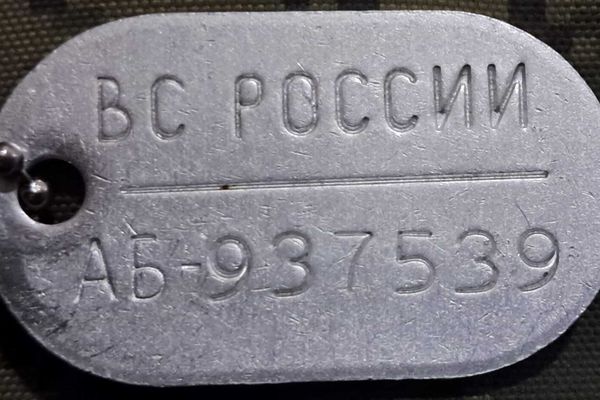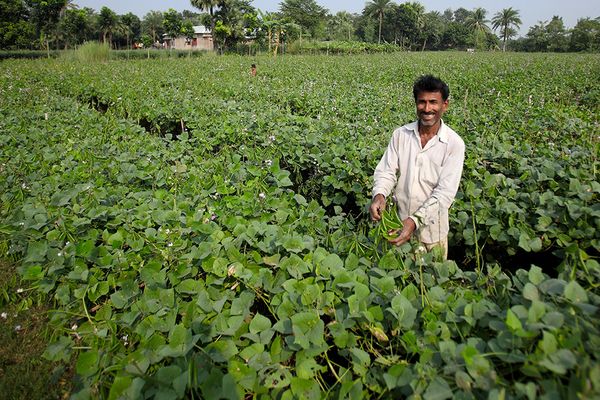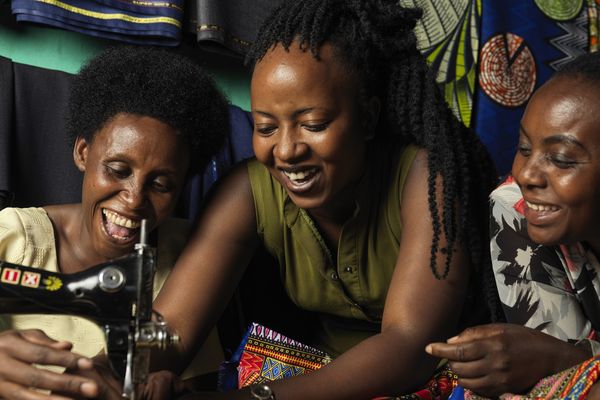Jhorna Fabrics started with one sewing machine, one room and a bundle of fabric purchased from the market with a BDT 5,000 (USD 50) microloan. Little did I know my lifeline would grow into a boutique that would one day be visited by the Queen of the Netherlands.
I started Jhorna Fabrics when my family’s future fell solely on my shoulders, overnight.
Shamsul, my husband, worked as a welder in Dubai. After four years, he returned home and invested the savings we had built up into a business in Bangladesh.
Then, his brother stole all the money and disappeared.
My husband was devastated. He couldn’t cope with the stress – it took a toll on his heart. Weeks of hospital visits followed. We received vague answers. It felt like we were going in circles. The medical bills quickly drained any money we had left. Soon I was unable to pay my children’s school fees.
It was the darkest point in our life.
I used to tailor clothes on request from my neighbours sometimes, a skill I taught myself. The money I made was enough to buy biscuits, fruits – little treats for my two children.
I started there.
I joined a village development programme and took a short course on running a small business. BRAC saw potential in me and I took a microloan.
I was extremely nervous about spending the money. I had to pay the loan back in a year, in monthly instalments.
I kept BDT 500 (USD 5) separate to pay for some of the future instalments if my business did not work out, dropped my children off at school and went to Islampur, a wholesale fabric market in Dhaka, with my younger sister.
Islampur is made up of hundreds of small shops, lined up one after another. The sellers, and the buyers, are mostly men – all squeezing, staring, pushing. The area has a distinct smell – linens, cotton and sweat.
I looked, and was looked at for hours, clutching my loan money, until something caught my eye – a dark blue fabric patterned with off-white flowers. The shopkeeper told me it was called Arvind Voile. It was good quality, relatively cheap, and his customers found it very comfortable.
We negotiated for 15 minutes. I couldn’t afford to be bullied into a bad deal. I feigned disinterest, pretended to walk away, boasted confidently about how I knew the real price of fabric – and finally managed a small bargain, which saved BDT 600 (USD 7). My sister and I returned home at dusk with exactly BDT 4,500 (USD 63) worth of fabric. I got to work.
I scribbled on my notebook for hours, calculating how much to sell, at what prices, and when to sell it by, and then started sewing. The next day, Jhorna Fabrics opened. I hung all my creations on an iron rod and waited for someone to walk by.
My first customer showed up in less than 30 minutes. I sold BDT 3,000 (USD 35) worth of clothing the first day, and BDT 9,000 (USD 105) within four days – doubling my initial investment.
As I sold more, I felt more and more confident with my ability to manage the business, took out more loans and invested in staff and sewing machines.
My business grew. I was being spoken about in places I had never been in.
In 2005 I attended a seminar for small and medium enterprises in a nearby textile factory – and caught the attention of the Ambassador of the Netherlands. Officials from the embassy started visiting me and taking photos of everything.

Jhorna Islam standing in her neighbourhood that knows her as the woman who befriended a Queen
Little did I know my name had flown far beyond my small neighbourhood, to the queen of a foreign land.
The preparation began six months before she came.
The roads leading to my home were repaired and elevated platforms to walk on were installed in case of rain. Police officers lined all the surrounding roads. Queen Máxima stepped through the gates into Jhorna Fabrics on a cold December day, just before Christmas in 2014. I showed her my work and introduced her to the brilliant girls who work with me. She stayed for 45 minutes, 20 more than scheduled.
Within just a few days of her visit, she sent modern sewing machines, and Rosemary, a fashion designer from the Netherlands.
My designs are centred around what women need, and my priority is comfort – they should be able to wear it throughout the day, through the most troublesome work. My customers would vent to me all the time about how difficult it is for women to juggle multiple, separate articles of clothing, and be both presentable and comfortable in the summer heat. I designed a 3-in-1 poncho that was also a hijab (headscarf that Muslim women wear) and a layered face mask, made from light cotton. It was an instant hit.
It wasn’t the queen’s only visit either – we stayed in touch and she visited again, four years later.
Now that I have found a way out of my own crisis, I use Jhorna Fabrics to do the same for others.
Currently, I employ 16 girls. There are no men, and the girls can be as free as they want – bringing their kids to work, dancing, singing, and not having to cover themselves up or restrict themselves in any way.
They are in charge of the money, which gives them ownership. They collect the money from the customers, count it themselves, keep what they’ve earned, and hand the rest to me. Trust is important.
With the profits from the business, I cover the school fees for 10 children. Two of them belong to the staff, and the other eight are from families nearby.
As for my family – my husband is now my working partner, my son graduated as an engineer from a university in Singapore and is working on Bangladesh’s first metro rail, and is living happily in our neighbourhood.
Jhorna Fabrics is my identity, purpose, a safe space where talented young women can grow, and a source of hope for children in my community. I don’t want a lot of profit, I just want to build an environment of trust, and make things easier for women to be independent. It will take some time, but we continue to find a way.



